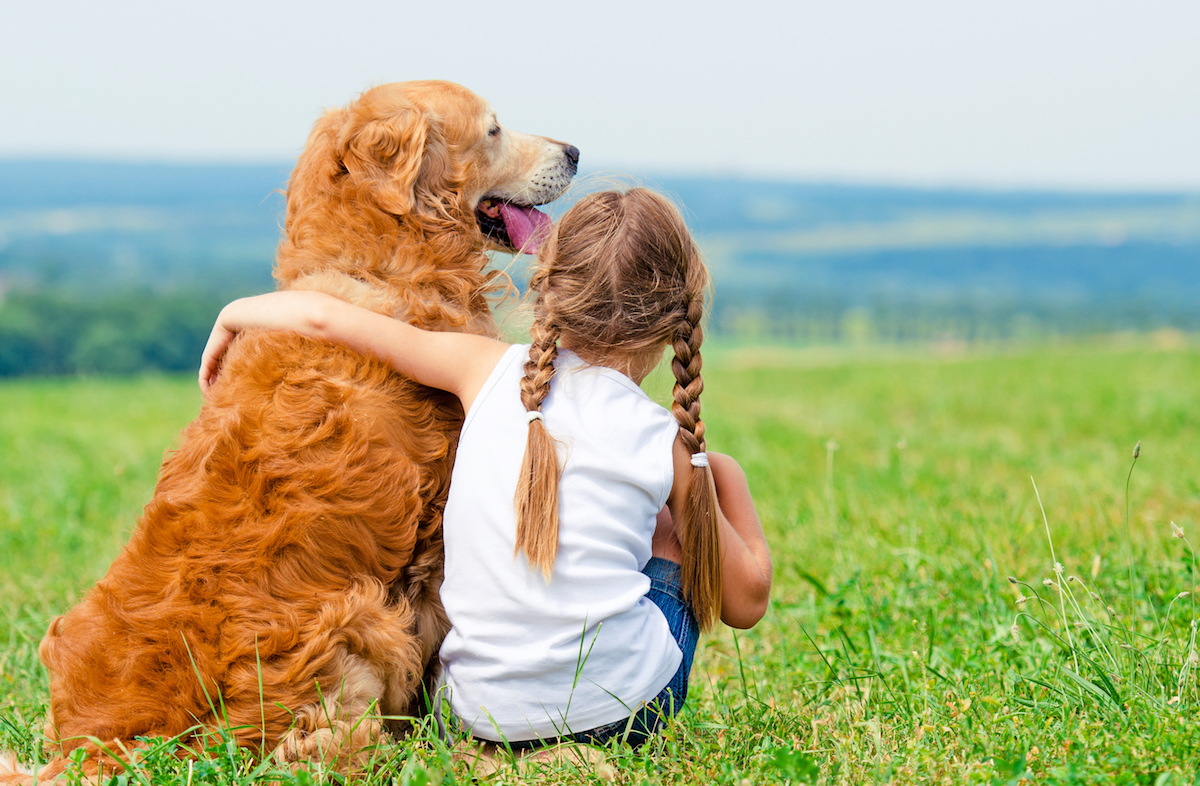With the fall season, the family dog may suddenly be reduced from full-time companionship with his favorite person or people to being home alone for at least part of the day. Our family went through this with my kids’ personal dogs both for regular school and then when they went off to college. This may be a traumatic shift for your pet, but there are ways to ease him into the new routine.
You can start in “everyday” life. It is tempting for kids to give their dog an emotional farewell in the morning and a huge greeting when they return in the afternoon. Instead, concentrate on making those comings and goings regular parts of his day. When the school year gets back in session, your dog figures it is just a quick trip out when your son or daughter leaves.
Obviously it helps if there are other people or pets in the home. Even a canary can provide some company to your dog, who is a social being. Our dogs were lucky in that I was working from home, and we had other pets, including other dogs. If you don’t have other pets and can’t be around, you need ways to get your dog over the initial disappointment of being left alone.
Many dogs have special toys, treats, or chew items. Give your dog one of his favorites as the kids head out the door in the morning. That will help ease his disappointment at being left behind. If you, the parent, will be at home, plan some extra exercise for the lonely dog. A long walk is good for him both mentally and physically. In fact, if you are feeling “empty nest syndrome” with kids off to college and away from home, it is good for both of you!
For daily separations, try some of the standard “amusement for a lonely dog” tricks. You can record your child reading his favorite book (or his dog’s favorite book) and play it for the dog. Leave yesterday’s t-shirt by the dog’s bed so he has your child’s scent for comfort. If you will all be gone, consider calling home and leaving a message for the dog on your answering machine. (Try this trick on a day you don’t actually plan to leave so you can gauge his reaction to this. Some dogs get very excited hearing the voice of their person. You want calm, not crazy.)
If your dog just won’t settle, ask your veterinarian about using a calming supplement, pheromone sprays or bandanas, or some melatonin. A few unusual cases may benefit from an actual sedative or behavior-modifying medication.
When your child heads off to college, the adjustment can be more difficult for the dog, but we discovered a few tricks that helped. My son’s Australian Shepherd enjoyed Skyping with “his boy.” Some dogs get hyper, and others don’t react at all to phone calls or Skyping visits. You have to experiment.
Keeping an old, unwashed sheet or shirt with your child’s scent on it is comforting to a dog who is feeling lonesome. Just be aware that an old shoes and clothing may get chewed as a “comfort” item. If possible, keep these items in your dog’s crate or near his favorite resting spot.
My daughter solved this problem by taking a dog to college with her after her freshman year. That did still leave me with her other two dogs (plus my own!), but I think both Kate and her dog were much happier that way. She rotated which dog got apartment privileges with her.
Dogs going off to college life must be extremely stable and not inclined to bark or be destructive. Apartments that allow dogs are often few and far between. You don’t want to change a landlord’s mind about allowing pets!
Finally, college students need to be realistic about their schedules. Baloo, my son’s Aussie, would have been a great college dog, but Tom’s schedule as an engineering student was not at all compatible with having a dog. Kate’s English major schedule, on the other hand, was perfect.
With experience, your dog will learn the school-year routine and adjust his habits accordingly. And who knows? You and the family dog may develop your own special relationship while the kids are off at school.
This article was reviewed/edited by board-certified veterinary behaviorist Dr. Kenneth Martin and/or veterinary technician specialist in behavior Debbie Martin, LVT








